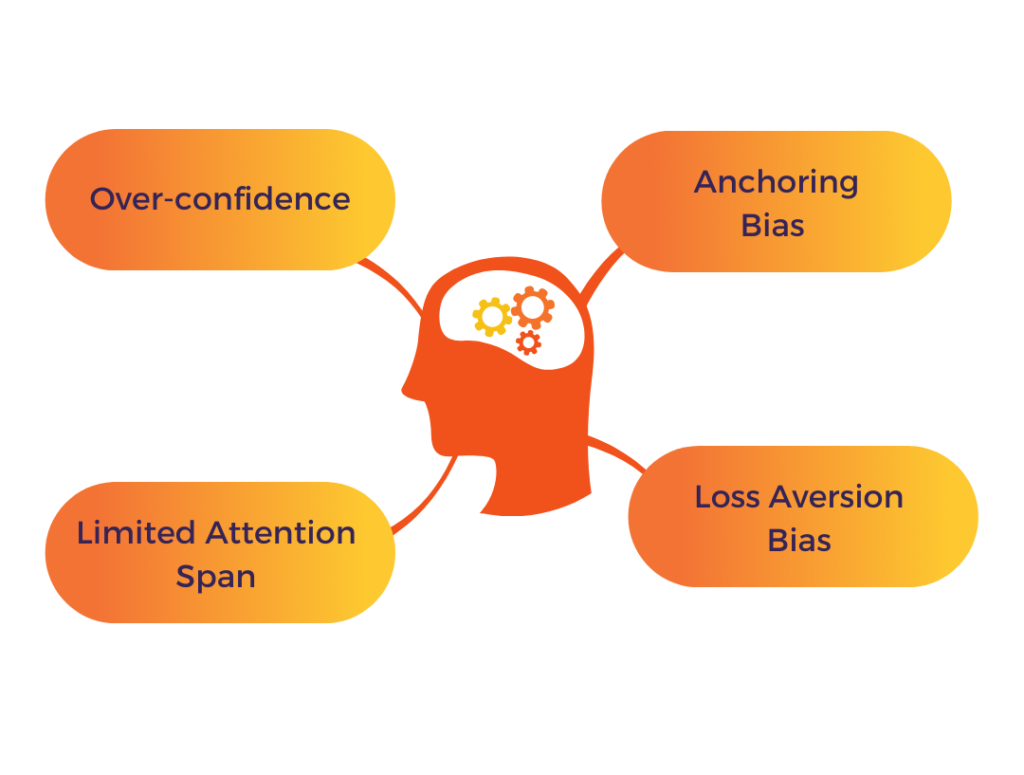Over-confidence
It’s good to be confident in any decision making BUT being too confident can be counterproductive. If an investor is over-confident they may want to make changes to their investment strategy against good advice or make rash investment decisions.
Anchoring Bias
Anchoring Bias can lead to an over-reliance on a particular (and often the initial) piece of information given. This way of thinking can lead someone to filter out other information and only focus on one aspect, This is not advisable, especially when making financial decisions.
Limited Attention Span
Making the right investment decision is generally based upon a huge amount of information about the markets and products available. If a decision is only based on a limited amount of information, then by not ‘considering all the options’ you are potentially missing out on identifying the best of the best out of a vast array of investment options.
Loss Aversion Bias
If an investor has made a bad investment decision in the past , this can be one of the factors leading to Loss Aversion Bias. This can stop investors from changing their initial decision in a timely manner. They decide to remain invested in a loss-making product in the hope that holding it for longer will reverse the downward trend and deliver expected returns, even if this is clearly unlikely to happen.
The effect these behaviours and biases can have on investment decisions is all too common. If you are a financial provider or professional you will be alert to identifying these factors with your clients.


